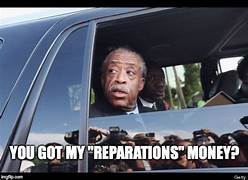Starting April 1, your local burger, hot dog or taco joint will be run by the government. This is via a “Food Council”.
Wages, benefits and working conditions will be controlled by this non elected body—and they give many ways for workers to sue their employers—and they will back them up. So, if you invest your money, you have no say on how your business is run. Government, like any other socialist/communist nation will control it. Think folks with money are so stupid as to invest in California.
This is how they will control your business:
“Here’s where it becomes particularly alarming for franchisees and their corporate owners:
- Prohibits a fast food restaurant operator from discharging or in any manner discriminating or retaliating against any employee for any of the following:
- Making a workplace safety or health complaint or disclosing information.
- Testifying or participating in a proceeding relating to employee or public health or safety, or any state or local Fast Food Council proceeding.
- Refusing to perform work the employee had reasonable cause to believe would violate employment, public health and safety laws or would pose a substantial risk to the health or safety of the employee, other employees, or the public.
- Grants a cause of action to any worker discharged, discriminated or retaliated against for exercising their rights, creates a rebuttable presumption of unlawful discrimination or retaliation for any adverse action taken against the worker within 90 days of the franchisor or franchisee having knowledge of the worker exercising their rights and allows the Labor Commissioner to enforce violations without receiving a complaint.”
Yup, no compliant need to be filed for the government to sue and close down your business.
Gov. Gavin Newsom’s Fast Food Council: How to Kill Another Industry
Every business in California already operates under health, safety and employment standards set by state and local laws
By Katy Grimes, California Globe, 3/6/24 https://californiaglobe.com/fr/gov-gavin-newsoms-fast-food-council-how-to-kill-another-industry/
With California Governor Gavin Newsom mired in “PaneraGate,” after he exempted a billionaire buddy from California’s new $20 minimum wage law, people are asking about this new Fast Food Council the Governor just announced.
Newsom’s friend, Billionaire Greg Flynn owns more than two dozen Panera Bread locations in California, as well as Applebee’s, Pizza Hut, Taco Bell, and Wendy’s, the Globe reported. And Flynn has contributed at least $164,800 to Newsom’s political campaigns, the New York Post reported.
California nearly became the first state in the country to unionize fast food employees in 2022. Instead, fast food franchise owners and restaurant owners “negotiated,” “agreed” (were coerced) to the $20 per hour minimum wage, and by expanding state government to create a new Fast Food Council under the Department of Industrial Relations. The council will set minimum health, safety and employment standards across the California fast food industry – even though every business in California already operates under health, safety and employment standards set by state and local laws. This was just about government expansion and control.
Two bills created this regulatory mess:
In August 2022, Assembly Bill 257 by Assemblyman Chris Holden (D-Los Angeles), enacted the Fast Food Accountability and Standards Recovery Act or FAST Recovery Act and fast food council.
In 2023, Assembly Bill 1228, authored by Assemblyman Chris Holden (D-Pasadena), increased the minimum wage for fast food workers across the state to $20 per hour, and was one of the most contentious bills this year, with only a compromise between the Service Employees International Union (SEIU) and fast food companies managing to keep the bill alive last month.
Prior to passage of AB 1228, California’s minimum wage was $15.50 per hour.
“California is committed to ensuring that the men and women who have helped build our world-class economy are able to share in the state’s prosperity,” said Governor Newsom. “Today’s action gives hardworking fast-food workers a stronger voice and seat at the table to set fair wages and critical health and safety standards across the industry. I’m proud to sign this legislation on Labor Day when we pay tribute to the workers who keep our state running as we build a stronger, more inclusive economy for all Californians.”
Gov. Newsom announced these fast food council appointees late on Friday March 1, 2024, which is usually how politicians try to bury the news. So who are these appointees who have the power to kill an entire industry through anti-business regulations and wage mandates?
Fast Food Council Members:
- Nick Hardeman (Chair)
- Michaela Mendelsohn
- Anneisha Williams
- Joe Johal
- SG Ellison
- Richard Reinis
- Angelica Hernandez
- Maria Maldonaldo
- Joseph Bryant
- GO-Biz Representative (Non-voting member)
- DIR Representative (Non-voting member)
From the Governor’s website announcing the appointees, with a short bio on each:
Nicholas Hardeman, of Sacramento, has been appointed Chair of the Fast Food Council. Hardeman has been Chief of Staff to State Senate President pro Tempore Emeritus Toni G. Atkins since 2016. He served as Special Assistant to former State Assembly Speaker John Pérez and to former State Assembly Speaker Toni G. Atkins from 2011 to 2016. Hardeman was Chief of Staff to former State Assembly Speaker pro Tempore Fiona Ma from 2006 to 2011. He was a Policy Consultant for the California State Senate from 2003 to 2006. Hardeman serves on the California Exposition and State Fair Board of Directors, the Brightline Defense Project, and the California Storm. He earned a Bachelor of Arts degree in American Government and Politics from Saint Mary’s College of California. This position does not require Senate confirmation and the compensation is $100 per diem. Hardeman is a Democrat.
SG Ellison, of Sonoma, has been appointed to the Fast Food Council. Ellison has been CEO and Franchisee of Diversified Restaurant Company since 2019, and was previously President from 2014 to 2019. He has been CEO of First Street Development since 2013. Ellison is a member of the Young Presidents’ Organization. He earned a Bachelor of Science degree in Civil Engineering from Arizona State University. This position does not require Senate confirmation and the compensation is $100 per diem. Ellison is registered without party preference.
Angelica Hernandez, of Paramount, has been appointed to the Fast Food Council. Hernandez has been a Cook Trainer at McDonald’s since 2012. This position does not require Senate confirmation and the compensation is $100 per diem. Hernandez is not registered to vote.
Piardip “Joe” Johal, of Pleasanton, has been appointed to the Fast Food Council. Johal has been CEO of Wendy’s of the Pacific since 2002. He was Health, Safety, and Risk Manager for Hewlett-Packard from 1983 to 2003. Johal is Chair of the National Governing Board for Asian Pacific Islander American Public Affairs (APAPA) and a member of the Wendy’s Technology Advisory Council and Indo-American Community Federation. He earned a Bachelor of Science degree in Industrial Engineering from the University of California, Santa Cruz. This position does not require Senate confirmation and the compensation is $100 per diem. Johal is registered without party preference.
Michaela Mendelsohn, of Los Angeles, has been appointed to the Fast Food Council. Mendelsohn has been President and CEO of Pollo West Corp since 1988 and is Founder of TransCanWork. She served on the Los Angeles County Workforce Development Board from 2018 to 2021. This position does not require Senate confirmation and the compensation is $100 per diem. Mendelsohn is a Democrat.
Richard Reinis, of Los Angeles, has been appointed to the Fast Food Council. Reinis has been Partner at Thompson Coburn LLP since 2014. He was Partner at Steptoe & Johnson LLP from 2006 to 2014. Reinis was CEO and General Counsel for Great Circle Family Foods LLC from 2000 to 2006. He was Managing Partner at Reinis & Reinis from 1985 to 2000. Reinis was Founding Partner of the Law Offices of Richard Reinis from 1981 to 1985. He is a member of the Chancery Club and the Max H. Gluck Foundation. Reinis earned a Juris Doctor degree from the University of Southern California School of Law and a Bachelor of Arts degree in History from Princeton University. This position does not require Senate confirmation and the compensation is $100 per diem. Reinis is a Democrat.
Anneisha Williams, of Los Angeles, has been appointed to the Fast Food Council. Williams has been a Shift Leader at Jack in the Box since 2021. She is a member of the California Fast Food Workers Union, formerly Fight for $15. This position does not require Senate confirmation and the compensation is $100 per diem. Williams is a Democrat.
As the Globe reported in August 2022, AB 257 enacted the Fast Food Accountability and Standards Recovery Act or FAST Recovery Act and fast food council.
From the bill language:
The purpose of the council would be to establish sectorwide minimum standards on wages, working hours, and other working conditions related to the health, safety, and welfare of, and supplying the necessary cost of proper living to, fast food restaurant workers, as well as effecting interagency coordination and prompt agency responses in this regard. The bill would define the characteristics of a fast food restaurant, including that the establishment be part of a set of fast food restaurants consisting of 100 or more establishments nationally that share a common brand, or that are characterized by standardized options for decor, marketing, packaging, products, and services.
This bill would require the council to promulgate minimum fast food restaurant employment standards, including standards on wages, working conditions, and training…
Here’s where it becomes particularly alarming for franchisees and their corporate owners:
- Prohibits a fast food restaurant operator from discharging or in any manner discriminating or retaliating against any employee for any of the following:
- Making a workplace safety or health complaint or disclosing information.
- Testifying or participating in a proceeding relating to employee or public health or safety, or any state or local Fast Food Council proceeding.
- Refusing to perform work the employee had reasonable cause to believe would violate employment, public health and safety laws or would pose a substantial risk to the health or safety of the employee, other employees, or the public.
- Grants a cause of action to any worker discharged, discriminated or retaliated against for exercising their rights, creates a rebuttable presumption of unlawful discrimination or retaliation for any adverse action taken against the worker within 90 days of the franchisor or franchisee having knowledge of the worker exercising their rights and allows the Labor Commissioner to enforce violations without receiving a complaint.
The California Restaurant Association opposed AB 257:
“AB 257 does nothing to help hard-working California families struggling with these costs, in fact it would only serve to hit their wallets even harder. also harms tens of thousands of counter service restaurants. It would impose increased employee costs and onerous new workplace rules at a time when many are still struggling to get back on their feet after the devastating impacts of the government mandated COVID closures. Many restaurants are struggling with labor shortages and increased costs for food and supply chain delays – all while trying desperately to stay afloat. We should be helping this vital sector of our state’s economy keep their doors open, not actively pursuing measures that would kick them closed.”
As the Globe warned, Expect lawsuits over AB 257 because the Legislature certainly does, but not for what you might think:
“This bill authorizes a cause of action for any employee of a fast food restaurant who is discharged, discriminated or retaliated against for exercising rights established by the FAST Recovery Act. The estimated workload cost of one hour of court time is $956. If 20 cases are filed statewide resulting in 20 hours of court time for each case, costs would be approximately $382,400.”
Obviously there is much more to uncover…



